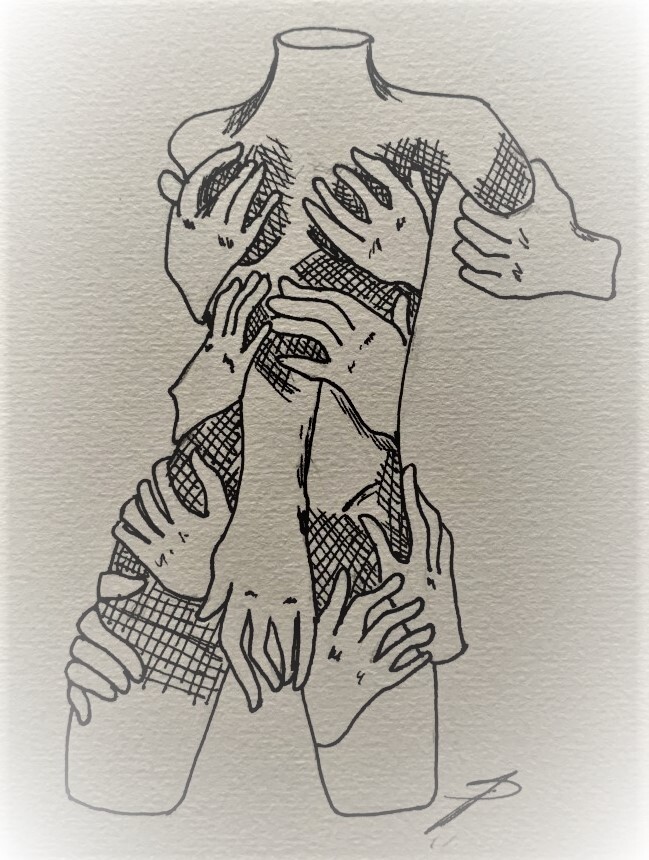Women become increasingly wary as sexual harassment proves widespread
At least 97% of all women have experienced sexual harassment, calling into question the normality of rape culture.
97 percent. It may not be all men, but it’s almost all women that have been sexually harassed or assaulted. To understand the 97 percent, we’ll have to go back to March 3.
On March 3, a woman named Sarah Everard was walking home to her home in London after leaving a friend’s house when she suddenly vanished. Nobody knew where she was until her body’s remains were found in a builder’s bag in a wooded area. When local police found out about this, they sent out a statement warning all women to not go out past dark.
That is a problem in itself because women aren’t the issue — men are. Why punish women for problems that men have created? Jenny Jones, Baroness Jones of Moulsecoomb, a member of the House of Lords in the UK, realized how unfair this sentiment was and proposed a bill that would set a curfew for men so they couldn’t go out past six, and as a result, men retaliated with the slogan “Not All Men.”
Once the popular social media app TikTok heard about this incident, creators started spreading awareness of not only Everard’s story but also their own personal stories of when men made them uncomfortable. There were men in the comments of these videos saying that not all men harass and catcall, that some guys are nice. Although there are men in the world that have basic human decency, we are talking about the men that think it’s okay to harass women, and the fact of the matter is that there are far too many of them. If some men have such a problem with women sharing their stories about being harassed, then they need to take a step back and reflect because there is no reason to be so defensive if they haven’t done anything wrong.
Women understand that it’s “not all men” who harass women, but there are everyday assumptions people make to keep themselves safe. Not everyone is a thief, yet people still lock their doors at night. Not every shark bites, but if you were swimming in the ocean and saw a shark, you would get out of the water. Women understand that not every single individual man on this planet is a sexual predator. However, sometimes it is best that women generalize men in order to protect themselves. Considering that nearly one in five women in the U.S. has been raped, and 96% of those women report that they were raped by men, it’s not unfair for us to be cautious.
Harassment and the patriarchy is so embedded into our society that common phrases like “boys will be boys” or “she’s just playing hard to get” keep rape culture alive, and not enough people realize it. Now, when it comes to specific problems like catcalling or taking pictures of women without consent or trying to get with women when they’re drunk, there are arguably even more men that don’t realize these are also forms of sexual harassment and/or coercion. These things that may seem harmless are actually forms of predatory behavior that have been passed off as nothing more than a joke or fun when it’s not. Women will always get sexually harassed no matter what stage of their life they are in or what their background is, and it’s a problem.
Victim blaming is another big part of rape culture, with many asking questions or making comments like “well, what were they wearing?”, “they shouldn’t have been out so late,” or “they shouldn’t have been drinking so much.” Victim blaming puts the responsibility of the abuse on the victim, and it takes responsibility away from the abuser, even though no matter what the victim does, it is never their fault they were abused. The responsibility of the abuse should always be the abuser, not to mention the society at large that enables the abuser.
“Not all men” may be true, but like so much else in this world, it’s another reactionary statement made in order to silence those wanting to raise awareness about their own experiences. Half the world has been speaking their truth — now it’s time for the other half to listen.

Jasmin Dominguez is a Senior at Columbia Heights High school, she is a staff writer. She likes writing for journalism because she learns to look at important...







